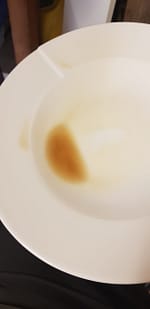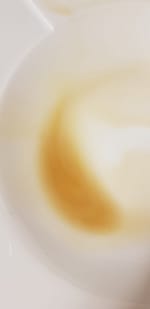I needed a beer for drinking at Christmas and didn’t have a lot of time. As I quite like it, and it’s convenient for me, I used Voss Kveik to turn this beer around in 7-days from grain to glass. Inspired by a beer I’d sampled from Tony T a few weeks before hand, l set about creating a beer based on my earlier experiences with the yeast. I’m not convinced it likes a lot of hops, but I don’t let that stop me trying to convince it otherwise.
This is a beer I enjoy making and one that’s very handy to have in keg when I don’t have time to brew. It’s good to drink in 7-days when fermented at 35-39C, but does improve given a few weeks.
Process
I usually add any salt additions to the HLT while the strike water is coming up to temperature. I used to add salts just to the mash, for mash efficiency, but have found that the whole-water approach works well. To be honest, it’s easier.
Times
Mash: 60 min
Boil: 60 min
Mash
Mash at 68oC and mix the grist well to eliminate dough-balls. I like to stir the mash every 10-15 mins, I’ve found this helps the efficiency (on my system) after 60 minutes I test that conversion is complete using iodine to test. When it done, I batch sparge and run the wort to the kettle and start the boil.
Iodine Test
The iodine test works to test if any starches remain in the mash. If you have starch present in the mash, this means that the conversion process isn’t complete. To check conversion is complete:
- Add a few drops of wort in a drop of iodine, if the Iodine remains the same colour conversion is complete.
If starches are still present in the wort, it will turn a darker brown to black, which means conversion isn’t complete. If you get this, give the mash a stir and test again in 10 mins.


The iodine test isn’t the magic bullet to say that your conversion is complete, but it will show you if it isn’t. It is a great indicator when combined with time. Most all grain mash schedules are for an hour for a good reason.
Water Profile
Water 30l with 18l of RO and 12l of 250 RA tap water, ran off min 24 hours before use.
Additions 4g of Gypsum – 1g CaCl – 1g Epsom salts.
| Ca2+ | Mg2+ | Na+ | Cl– | SO42- | Alkalinity as CaCO3 | Dilution | HLT vol | 30 | |||
| Original Profile | 100 | 17 | 63 | 118 | 74 | 250 | Tap Water | 12 | 40% | ||
| Diluted Profile | 40 | 7 | 25 | 47 | 30 | 100 | 40% | DI/RO | 18 | 60% | |
| Target Profile | 100 | 17 | 51 | 60 | 120 | 80 | |||||
| Ions Required | 60 | 10 | 26 | 13 | 90 | -20 | |||||
| Ions Added | 40 | 3 | 0 | 16 | 87 | 0 | |||||
| Final Ions | 80 | 10 | 25 | 63 | 117 | 100 |
Recipe
| Amount | Fermentable | Cost | PPG | °L | Bill % |
|---|---|---|---|---|---|
| 3.50 kg | Muntons – Maris Otter | 38 | 2.3 | 90.4% | |
| 100 g | Munich | 37 | 6 | 2.6% | |
| 150 g | Crisp Malting – Caramalt 15L | 32.7 | 17.5 | 3.9% | |
| 120 g | United Kingdom – Crystal 50L | 34 | 50 | 3.1% |
Hops
| Amount | Variety | Cost | Type | AA | Use | Time | IBU | Bill % |
|---|---|---|---|---|---|---|---|---|
| 20 g | Wakatu | Pellet | 7.5 | Whirlpool at 80 °C | 0 min | 2.1 | 33.3% | |
| 15 g | Citra | Leaf/Whole | 13.6 | Boil | 10 min | 9.66 | 25% | |
| 25 g | Columbus | Leaf/Whole | 15 | Boil | 60 min | 48.97 | 41.7% |
Vital Statistics
OG: 1.046
FG: 1.006
ABV:5.14%
IBU (tinseth): 60.73
SRM (morey): 5.78
Mash pH 5.25
Voss Kviek Yeast and Pitching Temperature
I pitched a pack of Llemand Voss Kviek yeast to the “cooled” at 35C. I used an inkbird ITC-308 to hold the temp up at 35-38C and it had fermented out in 3 days, left for another 2 days and cold crashed and force carbonated ready for drinking
Final Beer and Tasting Notes
The final beer is a lovely NEIPA-esque naturally hazy beer. The rich orange colour with lasting white, pillowy head gives tons of citrus aromas and flavours, before a peppery spice with tangerine/orange kicks. There’s a lingering bitterness that brings you back fo another sip from the 60 min Columbus addition and Voss yeast.

